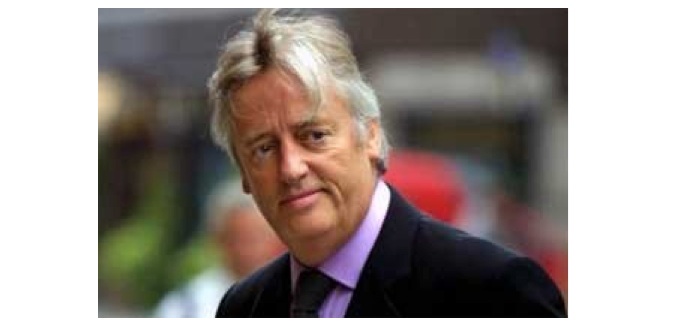INTERVIEW: Michael Mansfield QC on Stephen Lawrence.
Michael Mansfield’s CV serves as a reasonably exhaustive list of left wing causes célèbres spanning three decades: miners’ strike, Birmingham Six, Jean Charles de Menezes But it was the racist killing of the black teenager Stephen Lawrence in 1993 that the barrister identified as the most ‘significant’ of all his cases. Talking to Jon Robins for www.thejusticegap.com, Mansfield, who has represented the Lawrence family for 18 years, discusses the impact of a murder that (in the words of the Lord Chief Justice) ‘scarred the conscience of the nation’. You can read about the conviction of David Norris and Gary Dobson HERE.
In his 2009 autobiography Memoirs of a Radical Lawyer, Michael Mansfield wrote of the Lawrence case: ‘It was a long and bitter struggle which had a huge influence both on society and on our institutions, but which left the murderers free. They know who they are–and we know who they are–and to date they have not been brought to justice. Yet.’
Was Mansfield confident then that they ever would? ‘Yes. Although to be fair I think that about most cases.’ Mansfield explains that his confidence was nothing to do with scrapping of the ‘double jeopardy’ principle (under which people can’t be charged with the same crime twice) and everything to do with the commitment and drive of Doreen and Neville Lawrence.
Mansfield took the case after being approached by the solicitor Imran Khan after he had addressed a meeting at a community centre in Hounslow within months of the murder. Was it immediately obvious that the case was different? ‘No. There was nothing at that point that made us think that the case was going to touch the “conscience of the nation”. We couldn’t possibly have anticipated that. Frankly, the murder wasn’t unusual then. Unfortunately it isn’t unusual today. It still happens – as it did in Salford. Initially, people were very hostile and the media wasn’t interested – [their line was]: “This isn’t a racist attack etc”.’
What does the QC think of the Met’s plans to disband the Stephen Lawrence investigation team? ‘Extraordinarily odd,’ says Mansfield; noting that Metropolitan Police Commissioner Bernard Hogan-Howe recently said the remaining suspects ‘should not rest easily in their beds’. ‘The fact is that new technologies are capable of producing something from a garment for example that has been overlooked and, in this particular case, exhibits were mislaid or misplaced,’ the QC continues. ‘But also others have been afraid to come forward in the past – and there plainly are others – they might now come forward.’
How does he regard the controversial private prosecution which resulted in the short-lived trial of Dobson, Neil Acourt, and Luke Knight halted after the judge ruled that Duwayne Brooks’s evidence was inadmissible. All three were acquitted and under the double jeopardy rule couldn’t be charged with the same crime again. ‘I never had any doubts about it. The Lawrences never gave up but Doreen said her darkest days were around that time’ he says; adding ‘I do not blame Duwayne’. Mansfield continues: ‘As a result of that failure things moved forward very quickly: the case was front stage; the inquest jury came back with very clear verdict – that this was a murder and an unprovoked racist attack.’ Then he cites the Daily Mail ‘MURDERERS’ headline and the arrival of a newly elected Labour government ‘on a roll’ as moving the case forward.
As a defence lawyer, what did he make of the scrapping of double jeopardy principle? ‘I was ambivalent at the time. If there is no finality it allows the police to say ‘if we get it wrong this time we will get it right next time’. A certain laxity creeps in.’ Mansfield reports that that it the recommendation contained in the 1999 Macpherson report came from the paneland not the family.
Such was the significance of the Lawrence murder that, according to the Lord Chief Justice, the brutal murder ‘scarred the conscience of the nation’. Has the UK changed post-Lawrence? ‘The short answer is yes and significantly so,’ replies Mansfield. ‘I can look back to the 1950s, 1960s and possibly even later when it was perfectly acceptable for words like “nigger”, “coon” being used. Future generations – even if they were not alive at the time of the Lawrence murder – will know what it’s about: racism and a very nasty racism. It is not being about being politically correct. It is about having respect for human beings. Lawrence changed that.’







A detailed critique of the Court of Appeal judgment in the case of Oliver Campbell